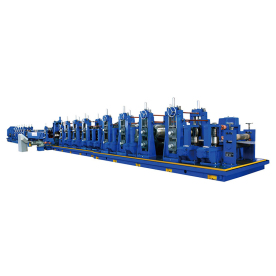[High frequency welder price]Understanding High Frequency Welder Price: Factors Influencing Costs and How to Get the Best Value for Your Investment
News 2024-11-21
****
Understanding High Frequency Welder Price: Factors Influencing Costs and How to Get the Best Value for Your Investment
The Basics of High Frequency Welding
High frequency welding, often used in industries such as automotive, aerospace, and manufacturing, involves the fusion of materials using high-frequency electrical currents. This welding technique is particularly useful for joining materials like plastics and metals, offering a clean and precise finish. Given the critical role that high frequency welders play in various applications, the market is flooded with options, leading to a wide range of prices.
Key Factors Influencing High Frequency Welder Price
1. **Brand Reputation**: Established brands with a long history of reliability and quality often command higher prices. These manufacturers invest heavily in research and development, leading to innovative features and enhanced efficiency. When considering high frequency welder prices, it's worth examining brand reviews and performance history.
2. **Technical Features**: The technological advancements incorporated into a welder can also significantly affect pricing. For instance, welders equipped with adjustable power settings, automatic shut-off features, or digital displays generally tend to be more expensive. However, these advanced features can improve usability and safety, providing a better return on investment for serious professionals.
3. **Welder Capacity**: The capacity of the welder, which denotes the maximum thickness of material it can weld, directly influences its price. Models designed to handle thicker or more challenging materials such as steel or aluminum are typically priced higher due to their enhanced capabilities.

Understanding High Frequency Welder Price: Factors Influencing Costs and How to Get the Best Value for Your Investment
5. **Durability and Warranty**: Price can also reflect the durability of the equipment. Welders constructed with high-quality materials and backed by substantial warranties can often justify a higher initial investment. A welder that lasts longer and requires fewer repairs can save money in the long run, making it a wise investment.
Average Price Ranges
The average price for high frequency welders can range significantly based on the aforementioned factors. Entry-level models designed for home or light industrial use may start around $300 to $800. Mid-range welders, suitable for more robust production environments, typically fall within the $1,000 to $4,000 range. Industrial-grade high frequency welders, designed for heavy-duty applications, can escalate in price to $10,000 or beyond.
Tips for Getting the Best Value
1. **Do Your Research**: Before making a purchase, conduct thorough research into the various brands and models available. Read reviews and seek out user feedback to gauge the reliability and functionality of different welders.
2. **Compare Prices**: Prices can vary significantly from one retailer to another. Take time to compare prices across multiple platforms, including both physical stores and online marketplaces.
3. **Consider Used Options**: For budget-conscious buyers, purchasing a used high frequency welder can be a great way to save money without sacrificing quality. Ensure that you thoroughly inspect any used equipment and verify its operational condition before buying.
4. **Negotiate**: Don’t hesitate to negotiate the price with suppliers, especially if you're ordering multiple units or large quantities. They may be willing to offer discounts or bundle deals.
5. **Look for Promotions**: Keep an eye out for seasonal sales, discounts, or promotions that can significantly reduce the high frequency welder price.

Understanding High Frequency Welder Price: Factors Influencing Costs and How to Get the Best Value for Your Investment
Investing in a high frequency welder requires careful consideration of various factors that influence price. By understanding these aspects and conducting thorough research, buyers can make informed decisions that deliver the best value for their investment. As the demand for high-quality welding continues to grow across industries, choosing the right welder at the right price becomes all the more crucial for success in any welding operation.
